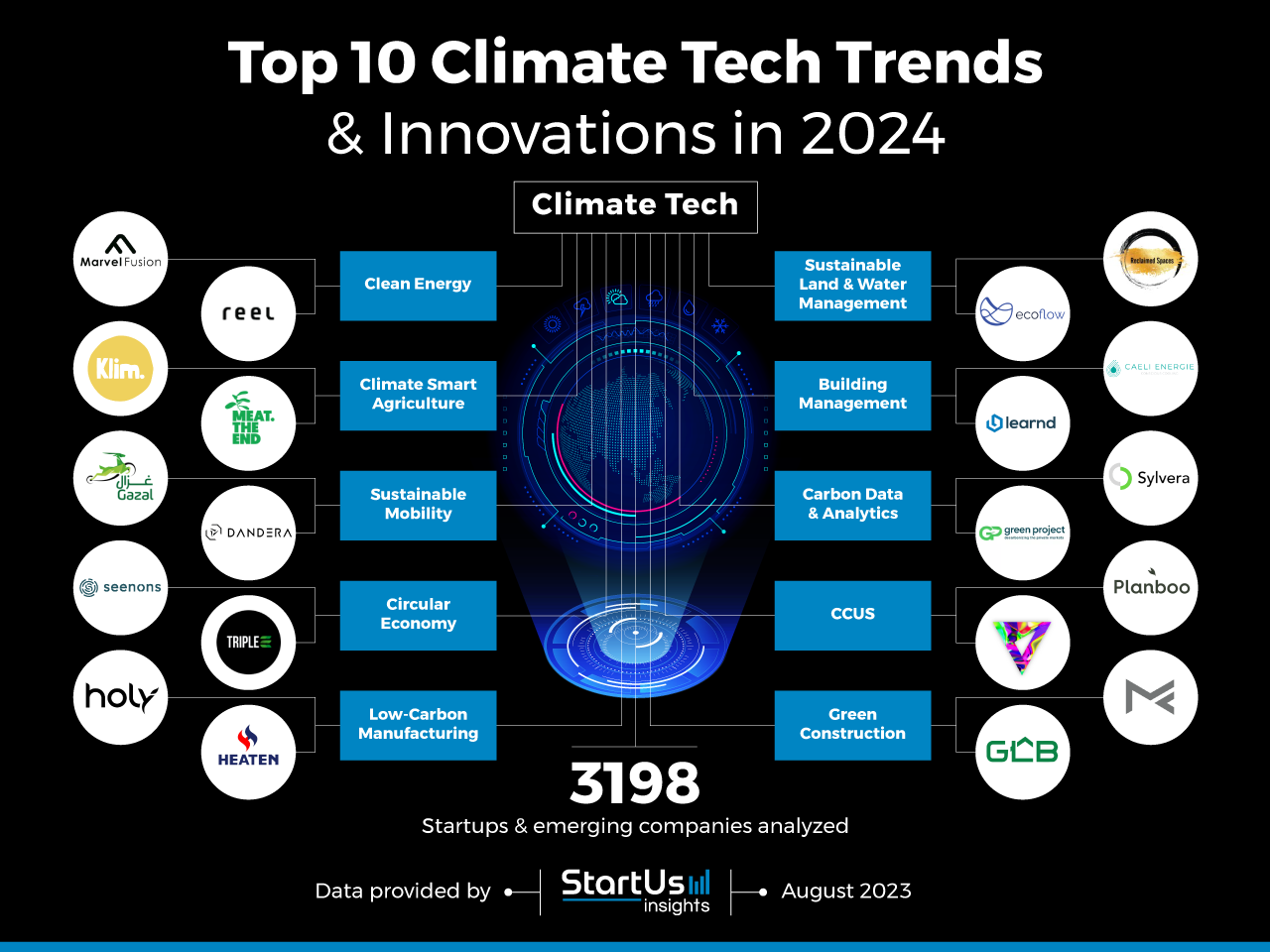As the world grapples with the urgent need to combat climate change, the role of technology, especially artificial intelligence (AI), in addressing environmental challenges is gaining prominence. 2023 saw a mixed bag of developments in the climate tech industry, with funding levels fluctuating. Still, the sector taking up a larger portion of the tech funding landscape than ever before. As we enter 2024, startup founders and investors are sharing their insights and predictions for the year ahead.
AI’s role in accelerating climate action
One of the key trends anticipated for 2024 is the accelerated adoption of AI in climate action. AI is expected to transform the way emissions are calculated, enabling companies to obtain more precise data on their Environmental, Social, and Governance (ESG) footprint. Rachel Delacour, founder and CEO of carbon accounting startup Sweep, emphasizes the importance of having the right climate team in place. Collaboration between chief technology officers and chief sustainability officers will be crucial to effectively harness AI technologies, avoiding tech infrastructures that contribute to higher emissions.
Renewable energy and AI collaboration
Danijel Višević, an investor at World Fund, predicts a renewables rally in 2024. The International Energy Agency (IEA) is expected to revise its forecasts for renewable energy expansion upwards once again. Renewables serve as the foundation for many climate technologies, and AI is poised to reduce the cost of climate tech, expediting development, deployment, and scaling. By the end of 2024, it is anticipated that global CO2 emissions will have peaked in 2023 and started a steady decline.
Diversification of climate tech investments
The climate tech landscape is evolving into a multifaceted investment arena, with increasing climate-focused and impact-oriented investors. This diversification of efforts is welcomed as it aligns with the complex nature of climate change, extending beyond greenhouse gas emissions. Romain Diaz, an investor at Satgana, highlights the importance of supporting adaptation and resilience solutions, encouraging private capital to go beyond climate mitigation.
Government actions and subsidies
Governments are expected to be pivotal in the energy transition in 2024. Subsidies will drive choices, and governments failing to embrace renewable efforts may lag behind their European counterparts. The UK’s upcoming general election, featuring the Labour Party’s £28 billion green plan, is cited as a pivotal moment. Andreas Thorsheim, founder of solar marketplace Otovo, anticipates critical decisions from governments regarding the energy transition.
Increased funding for nature protection
2023 witnessed a significant moment for nature tech, with frameworks encouraging organizations to monitor nature-related risks. In 2024, a shift in mentality is expected, recognizing the preservation of the natural world as integral to climate action. Frameworks like the Taskforce for Nature-related Financial Disclosures are pushing businesses to scrutinize supply chains and quantify their impact on nature, aligning nature preservation with long-term profitability and financial resilience, according to Dimple Patel, CEO of NatureMetrics.
Energy flexibility takes center stage
Energy flexibility is predicted to dominate in 2024. The proliferation of decentralized green energy assets such as rooftop solar, electric vehicles (EVs), batteries, and smart meters creates opportunities for flexible solutions to democratize access to energy markets. In mature markets like Europe and the US, software-first and hybrid models are expected to scale significantly, as Oliver Heinrich and Philipp Emig of Picus Capital forecast.
Grid tech solutions for EV expansion
The rapid growth of electric vehicles, coupled with intermittent renewables, puts strain on grid infrastructure. Policymakers are expected to realize this challenge in 2024. As a result, technology to support the expansion of the grid, including intelligent sourcing and manufacturing of grid components, will garner strong appeal and funding. Patric Hellermann, general partner at Fundamental, anticipates a focus on grid tech solutions.
Europe’s growing influence on climate tech
Europe is poised to assert greater influence in the global climate tech landscape in 2024. While climate tech deal volumes between Europe and North America have been comparable, European investment has historically lagged. However, recent developments indicate a shift, with European built environment climate companies matching North America in investment and deal size growth. New EU climate policies are expected to propel Europe to the forefront of climate tech across all funding stages.
2024 holds promise for the climate tech industry, with AI set to play a pivotal role in accelerating climate action. Renewables, diversified investments, government actions, nature protection, energy flexibility, grid tech solutions, and Europe’s growing influence are key themes to watch for this year. As the world continues its battle against climate change, these predictions offer a glimpse into the potential advancements and challenges that lie ahead in the quest for a sustainable future.





